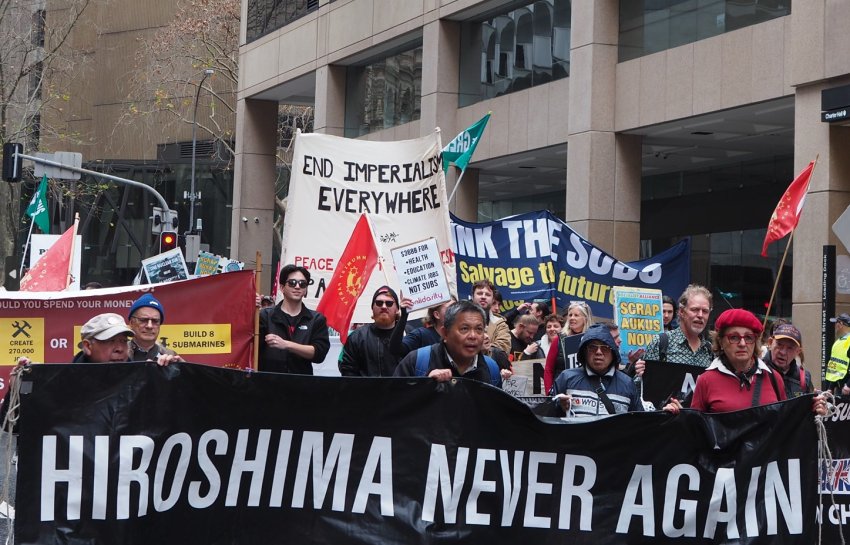
The Hiroshima/Nagasaki Day rally and march on August 6 called on Labor to scrap the AUKUS nuclear submarine deal and to sign the 2017 Treaty on the Prohibition of Nuclear Weapons.
A range of speakers addressed the protest which then marched to the Department of Defence offices where wreaths were laid for victims of nuclear bombs Hiroshima, Nagasaki, Maralinga and the Pacific.
One of the wreath layers, Naruaki Cann (who was born in Hiroshima), made a strong speech identifying the United States’ imperialism as the prime cause of the nuclear war threat today.
“The bombing in my home changed the world. Countries all around the world would seek to emulate the US’s power. The nuclear threat became a way for powerful countries to impose their will on others.”
Earlier, at the rally, Pastor Ray Minniecon, a descendant of the Kabi Kabi and the Gureng Gureng people of South-East Queensland and of the South Sea Islander people, reminded the several-hundred strong crowd of the victims of British nuclear bomb tests in Maralinga, on Aboriginal land in South Australia.
Allan Behm, the director of The Australia Institute’s International and Security Affairs Program, told the rally that there are seven serious policy risks with the AUKUS nuclear submarine deal.
He also estimated that the final cost of the nuclear-powered submarine deal would be closer to a trillion dollars (instead of the $368 billion usually quoted) because the cost of Australia’s major weapons acquisitions typically blow out by about 300%.
“This is mad as there were many other things we could better spend this money on,” Behm said.
Other speakers included Father Claude Mostowik from Pax Christi Australia and Dr Vince Scappatura from Macquarie University.